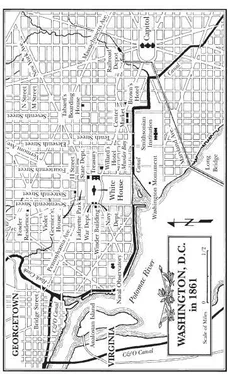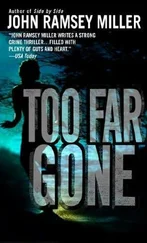John Miller - The First Assassin
Здесь есть возможность читать онлайн «John Miller - The First Assassin» весь текст электронной книги совершенно бесплатно (целиком полную версию без сокращений). В некоторых случаях можно слушать аудио, скачать через торрент в формате fb2 и присутствует краткое содержание. Жанр: Исторический детектив, на английском языке. Описание произведения, (предисловие) а так же отзывы посетителей доступны на портале библиотеки ЛибКат.
- Название:The First Assassin
- Автор:
- Жанр:
- Год:неизвестен
- ISBN:нет данных
- Рейтинг книги:3 / 5. Голосов: 1
-
Избранное:Добавить в избранное
- Отзывы:
-
Ваша оценка:
- 60
- 1
- 2
- 3
- 4
- 5
The First Assassin: краткое содержание, описание и аннотация
Предлагаем к чтению аннотацию, описание, краткое содержание или предисловие (зависит от того, что написал сам автор книги «The First Assassin»). Если вы не нашли необходимую информацию о книге — напишите в комментариях, мы постараемся отыскать её.
The First Assassin — читать онлайн бесплатно полную книгу (весь текст) целиком
Ниже представлен текст книги, разбитый по страницам. Система сохранения места последней прочитанной страницы, позволяет с удобством читать онлайн бесплатно книгу «The First Assassin», без необходимости каждый раз заново искать на чём Вы остановились. Поставьте закладку, и сможете в любой момент перейти на страницу, на которой закончили чтение.
Интервал:
Закладка:
As Leery and Marcus scrambled to pack and go, Bennett put his arm around Hughes. “I will do the negotiating with our guest,” he said in a hushed voice. “You are here primarily as a witness.”
“I know. We’ve gone over this,” said Hughes.
The photographers did not need long. Marcus stuffed the darkroom full of pans and solutions, collapsed it, and carried it away. Leery took the camera. At the door, he paused for a moment. “Thank you very much for this opportunity, Mr. Bennett and Mr. Hughes. I am sure you will be pleased with the result.”
“Yes, Mr. Leery. Good-bye,” said Bennett.
Hughes frowned at Bennett’s curtness. “Thank you, Mr. Leery. Please do deliver those prints. I will be anxious to see them.”
With that, Leery left. The two men could hear him and Marcus stomping down the stairs with their load. The front door opened and closed. There was silence for a moment. Next came the faint sound of footsteps moving up the stairs, getting louder.
In walked Lucius. “Sir, your guest.”
A figure stood in the doorway. He was clean-shaven, lean, and about average height. The man’s hair was the color of sand. Long exposure to the sun had reddened his skin. His expressionless face was long and narrow. Two bright blue eyes took in the whole room before settling on Bennett.
“Welcome,” said Bennett. Lucius thought he had never seen his master’s grin look so guarded. There was even a touch of dread in it. Bennett shook the stranger’s hand, and then Hughes did the same.
Bennett hobbled across the room and motioned to a chair for his guest. The visitor followed and sat down, and Bennett and Hughes took seats facing him. The visitor turned his head deliberately, looking over his left shoulder in the direction of Lucius, who remained standing near the door. His silent request was perfectly clear-he wanted Lucius to leave-but what immediately caught Bennett’s attention was the ear on the right side of his head. Or what remained of it. Half was missing, and most of the rest was mangled. The only unaffected part was a drooping lobe that would have looked large on a fully attached and healthy ear. On this one, it seemed like a bizarre, dangling growth.
The sight distracted Bennett for a moment. Then he spoke. “Lucius, please leave us,” he said. “Why don’t you go see if Mr. Leery needs help?”
The three men listened to Lucius go down the steps. There was a pause, and then the front door opened and closed.
“I have not been in the United States for many years,” said the visitor.
“This is not the United States anymore, you know,” said Bennett earnestly. “This is South Carolina. We have seceded.”
“Ah, yes,” chuckled the visitor. Bennett was not sure whether he was being laughed with or laughed at. He decided he did not want to know the answer.
Bennett shifted in his seat. “How was your journey?” he asked.
“Agreeable, thank you,” came the reply. “The weather was fine too, and I have found the people of Charleston to be simply delightful.” He smirked. “Shall we set aside these meaningless pleasantries? They are distractions. I know who you are, and I think I know what you want.”
The man spoke excellent English. Bennett had not been sure that he would. There was perhaps the slightest trace of a Spanish accent, but Bennett wondered whether he noticed it only because he was expecting it. Maybe it was not there at all. This man, at any rate, sounded like an American. From the North, he thought.
“What do you know of me?” asked the old plantation owner.
“Quite a lot, I suppose. You are Langston Bennett. You are one of the wealthiest men in the whole Southern part of the United-I mean, in South Carolina,” said the guest. “Forgive me.” He smirked again. “You own an enormous amount of land in the countryside and also keep this house in the city. You’ve spent time on my little island. Usted aprendio a hablar espanol . You were a supporter of Walker and Quitman and probably other filibusters as well. You have sent letters asking after me, and you have received responses recommending me for whatever job you have in mind.”
“Your knowledge is comprehensive,” said Bennett.
“A man in my line of work survives by staying well informed, Mr. Bennett.”
“Then you must know what I want.”
“I think I do, although it is not through any direct knowledge,” said the guest. “It is a matter of deduction.”
“So what have you deduced?”
“When a man like you meets with a man like me, there is generally only one thing he has on his mind. There is a certain kind of job he wants executed, and he wants it done by a professional. In your particular case, given your interests and recent events, I would guess that the job is a bit north of here.” He paused for a moment. “I would guess it’s in what you call the United States. Or at least what remains of it.” This time, he did not smirk.
“You are an intelligent man.”
“I am paid to be intelligent.”
“My offer is an attractive one.”
“You said it would be, and I believe you. That’s why I’m here.”
“Why should I hire you rather than someone else?”
“Because you need me.”
“And why is that?”
The visitor did not move. He did not even cast his eyes downward, Bennett observed. A less confident man would shift in his seat or look away, he thought. This fellow did neither. Bennett found himself liking his guest-or at least approving of him. It was true that the reports he had received from abroad gave his visitor high marks.
“You need me because nobody else can do the job,” said the guest. “I am aware of the reports that others have considered doing what you are about to ask of me. Yet they were ruled by passion and therefore doomed to fail. You must understand that I do not care about your ultimate ends. I do not care what you hope to accomplish by employing me. I care only about the job I am given. That’s why I’m effective. I’m never desperate. I’m simply lethal.”
Bennett absorbed this comment. He began to believe that he had found the man he had set out to find.
“We want you to rid us of this meddlesome president.”
“Right,” said the visitor. “Now give me a good reason to do this.”
“You may know that I have no natural heir,” said Bennett.
“Ever since I lost my two sons, I have searched for a worthy man to assume control of my properties after I am gone. In Tucker Hughes, I have found that man.”
Bennett gestured to Hughes, who nodded his head at the visitor. Then Bennett rose and wobbled over to his desk. He opened a drawer and removed several documents. “This is a copy of my will,” he said when he returned. “Please, take a look at it.”
The guest took the pages and scanned them. “As you can see,” said Bennett, “it lists all of my property and deeds virtually the entire estate to Mr. Hughes.”
“That is indeed what it says here.”
“I am an old man,” said Bennett. “It is doubtful that I will survive more than a few years.” He handed his guest another document. “This is an unsigned codicil. It was drafted the day I received the letter saying you would come for a meeting. It amends the will you have just read to provide half of my property to a person who completes a certain unnamed task to my satisfaction. if I am still living, or of Mr. Hughes, if I am not.”
The visitor looked it over. “This does leave matters a bit open-ended,” he said. “But I think we can work with it.”
“I figure a man in your line of work has the ability to enforce legitimate contracts if others do not,” said Bennett.
“You need not worry about it coming to that, however. We are men of honor. Mr. Hughes has every incentive to make good on our promise. He wants the result it will obtain as much as I do.”
Читать дальшеИнтервал:
Закладка:
Похожие книги на «The First Assassin»
Представляем Вашему вниманию похожие книги на «The First Assassin» списком для выбора. Мы отобрали схожую по названию и смыслу литературу в надежде предоставить читателям больше вариантов отыскать новые, интересные, ещё непрочитанные произведения.
Обсуждение, отзывы о книге «The First Assassin» и просто собственные мнения читателей. Оставьте ваши комментарии, напишите, что Вы думаете о произведении, его смысле или главных героях. Укажите что конкретно понравилось, а что нет, и почему Вы так считаете.












